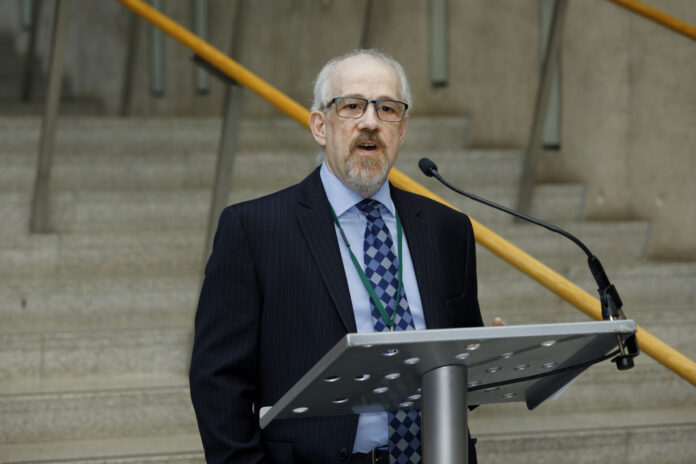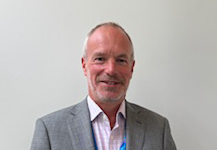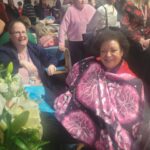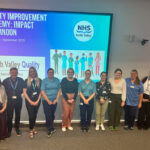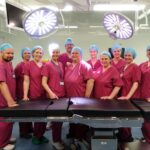Tell us a bit about your background, skills and experience
I worked mainly in Glasgow for many years in community development and urban regeneration. I then managed both European and National Lottery grant funds, and also carried out a number of UK wide projects. I led on the development of a new grants programme for Community Funds across the county. I then worked on the merger that formed the Big Lottery Fund, project managing to bring together all of the corporate service functions.
In recent years I’ve used my lived experience of mental ill health to work for and with a number of different voluntary organisations. I’m now an independent consultant specialising in mental health policy and engagement and I also do some research work with many universities across the UK. I’ve also served as a Director of several national third sector organisations.
What inspired you to apply to join NHS Forth Valley’s Board?
There were three main reasons for my application. Firstly, I’ve always been a strong believer in the NHS and the delivery of healthcare services free at the point of need. I’ve seen the positive impact this has in many of the deprived communities I’ve worked in and wanted to play my part. I don’t have clinical skills but I do have a great deal of governance experience so I thought I could make a contribution. Secondly, I moved to Clackmannan in 2011 and got involved in local mental health organisations, so joining my local NHS Board was an extension of other work I was involved in. And finally, I was attracted to the role of Whistleblowing Champion and to playing a part in making it easier for staff to speak up
How do you support the work of the Board?
I carry out the same range of activities as other Non-Executive Board members. I attend Board meetings and Committee meetings, setting strategy and holding our executives to account by considering and commenting on plans and reports. I am Vice Chair of the Clinical Governance Committee a member of the Staff Governance Committee and also sit on both the Falkirk and Clackmannanshire & Stirling Integration Joint Boards.
I also have an additional responsibility as NHS Forth Valley’s Whistleblowing Champion. My main job is to assure the Board that NHS Forth Valley is implementing the national whistleblowing standards appropriately and effectively. To do that I meet regularly with Prof Frances Dodd, our Executive Nurse Director who is the operational lead and with other key staff. I don’t get involved at all with individual cases; rather my role is to ensure that our processes and procedures are working well. I think we have a good system in Forth Valley but are always looking to improve it.
What do you like best about your role as a non-Executive Board member?
It’s a challenging role, particularly given the current financial situation. But I believe Board members have a big role to play in developing our response to these challenges. We are thinking about our health and social care services more as one system now and looking at how we can keep people well rather than simply treating them when they become unwell. We are working on a new Population Health Strategy that will set out a new direction for our Board in the years ahead, and that’s exciting.
I always enjoy the opportunity to get out of the meeting room and onto the ‘shop floor’ to talk directly to local staff. They do a tremendous job under difficult circumstances, and we need to make sure we give them time and space to look after their own wellbeing too. It’s always striking how staff will talk about the impact of pressures on patients first, rather than their own feelings. Their commitment to providing the best care that they can always comes through so strongly.
What have you learned about the NHS and local health services since you joined the Board?
I joined the Board in 2020, just a month or so before Covid hit. So much of my early time was shaped by our response to the pandemic and the incredible way we managed to reconfigure our services and systems very quickly. There was so much to think about, as we knew so little about what we were facing at the start. But our staff responded superbly, taking very tough decisions, adapting to new ways of working and making adjustments as new guidance came out every week.
I was involved in daily meetings on protecting residents in local care homes, literally seven days a week, and that was eye opening. Getting the balance between keeping people safe and also thinking about their rights wasn’t easy and there were some real dilemmas. We had some very difficult conversations and, at times, there were simply no good options, but staff always found a solution. Working together was the key, with the different teams and organisations pooling their efforts.
What are your interests and hobbies outside of work?
I don’t really have a lot of spare time. I enjoy music and reading as escapes from the world of healthcare policy. And I like to travel, particularly to the US.
What message would you like to like to share with local staff and partners?
A big thank you for everything you do and will continue to do every day. And a plea to speak up if you see something that’s not right or if you have an idea about how to make our services better. We are trying to build a culture where staff are confident that they will be listened to and that their views will be acted upon. We genuinely want to hear your suggestions.
